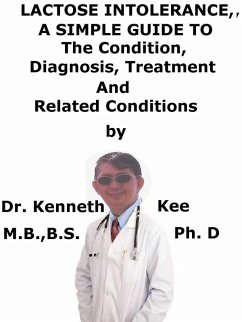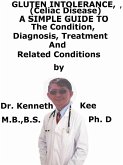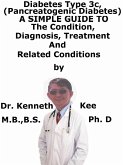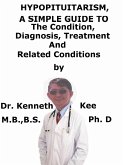An enzyme called lactase is needed by the body to digest lactose.
Lactose intolerance occurs when the small intestine does not produce enough of this enzyme.
As with everything the patient eats, the body needs to digest lactose to produce energy for body.
People with lactose intolerance do not make enough lactase in their small intestine.
Without lactase, the body cannot properly digest food that has lactose in it.
This means that if the patient eats dairy foods, the lactose from these foods will pass into the intestine, which can lead to gas, cramps, a bloated feeling, and diarrhea which is loose, watery stools.
1. Many cases of lactose intolerance are genetic.
That means that something in these people's genes makes them more likely to develop it.
2. People can also develop lactose intolerance for other reasons.
Sometimes another illness may maintain the intestine from producing adequate lactase.
3. For example, people with inflammatory bowel disease (IBD), including Crohn's disease, or other long-term disorders that affect the intestines are often lactose intolerant.
Symptoms often occur 30 minutes to 2 hours after having milk products.
Symptoms may be worse when the patient consume large amounts.
Symptoms are:
1. Abdominal bloating
2. Abdominal cramps
3. Diarrhea
Tests to help diagnose lactose intolerance are:
1. Lactose-hydrogen breath test
2. Lactose tolerance test
There is no cure for lactose intolerance, but limiting the intake of food and drink containing lactose will usually help control the symptoms.
Cutting down the intake of milk products that contain lactose from the diet most often eases symptoms.
The patient will play a big part in how the patient feels because it is up to the patient to watch what the patient eat.
There are also many lactose-free dairy products available.
The patient can add lactase enzymes to regular milk.
The patient can eat or drink milk and milk products that have reduced lactose or other foods instead of milk and milk products
TABLE OF CONTENT
Introduction
Chapter 1 Lactose Intolerance
Chapter 2 Causes
Chapter 3 Symptoms
Chapter 4 Diagnosis
Chapter 5 Treatment
Chapter 6 Prognosis
Chapter 7 Irritable Bowel Syndrome
Chapter 8 Food Allergy
Epilogue
Dieser Download kann aus rechtlichen Gründen nur mit Rechnungsadresse in A, B, CY, CZ, D, DK, EW, E, FIN, F, GR, H, IRL, I, LT, L, LR, M, NL, PL, P, R, S, SLO, SK ausgeliefert werden.









